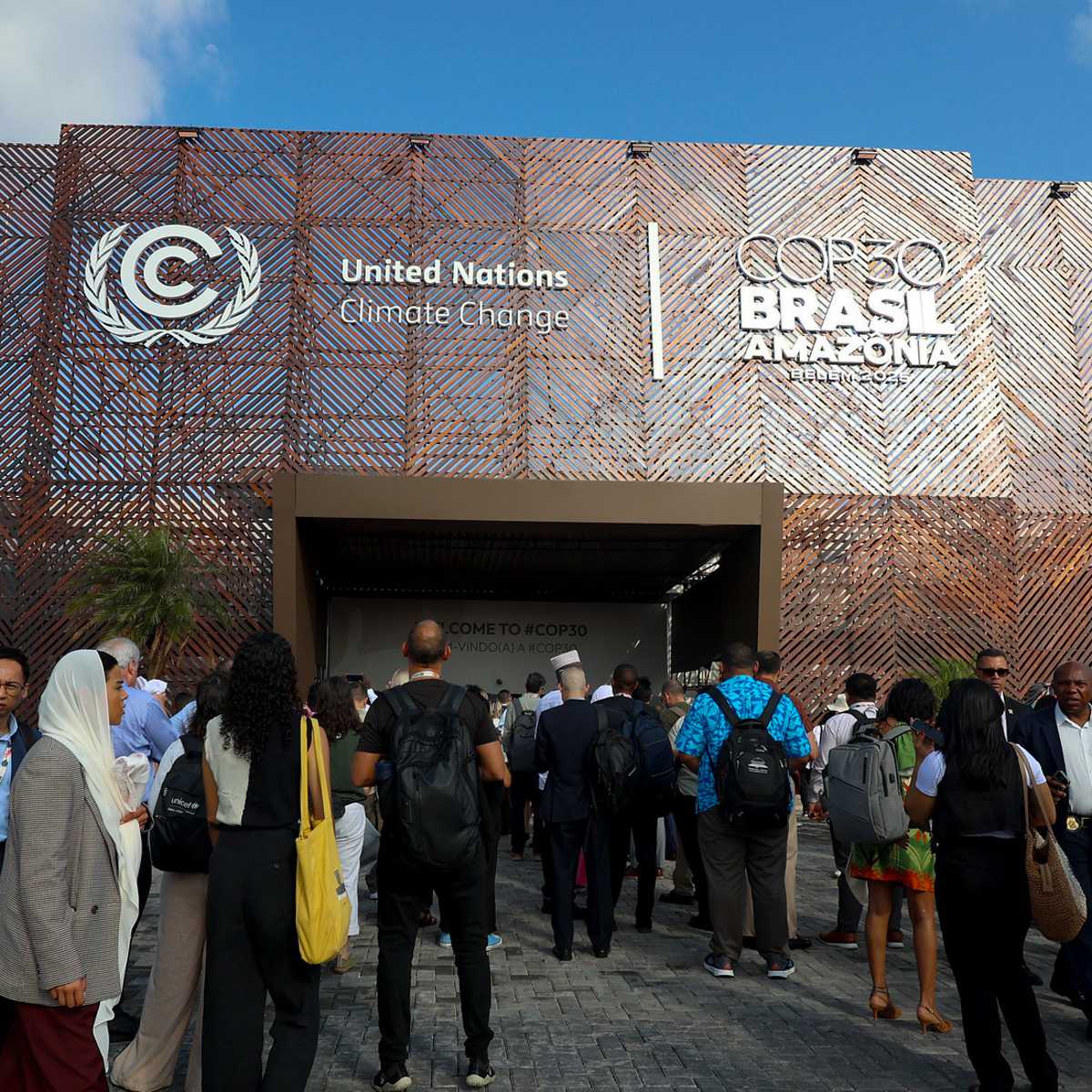

November 6-7 | Belém, Brazil
Overview
The opening two days of COP30 in Belém, Brazil, were marked by an unprecedented sense of urgency and a clear call for equity and justice. For the first time, the world’s climate summit convened in the heart of the Amazon—an emblem of planetary biodiversity and existential risk—where leaders, civil society, and multilateral organizations confronted the realities of a world rapidly approaching and likely to overshoot the 1.5°C Paris Agreement target. The Amazon’s central role and the need for bold, equitable climate action dominated the agenda, as stark warnings mixed with ambitious new initiatives and persistent geopolitical divides.
Although a range of stakeholders attended—including a small number from the private sector—the event predominantly amplified the perspectives of governments and UN agencies. As a result, the main stage discussions were heavily government-focused, with limited opportunities for diverse voices from other sectors, including the private sector, to be heard. Input from these groups was mostly confined to the thematic roundtables rather than being featured in the main proceedings. This approach, while ensuring clear government leadership, left little room for a broader exchange of perspectives.
Top Three Takeaways
- Climate Target Crisis & Fractured Consensus: The World Meteorological Organization reported that 2025 is likely to be among the warmest years ever, with global temperatures already 1.42°C above pre-industrial levels. The 1.5°C Paris target is now “virtually impossible” without overshoot, and the once-strong global consensus on climate action has splintered, with political divisions and climate denial openly challenged by multiple
- Demand for Climate Equity and Justice: Voices from Africa, Asia, the Pacific, the Caribbean, and Latin America stressed that developing nations—responsible for a fraction of emissions—bear the heaviest climate impacts. Calls for climate justice included technology transfer, removal of trade barriers on green products, and scaled-up support from wealthy nations. Leaders framed the climate crisis as a struggle for survival, not just environmental policy.
- Ambitious Forest Finance & Unified Carbon Markets: Brazil and Indonesia launched the Tropical Forests Forever Facility, aiming to mobilize $125 billion over three years to protect rainforests, with a share earmarked for Indigenous and local communities. More than 30 countries endorsed this landmark initiative, even as questions remain about governance and donor participation. In parallel, a push for unified global carbon markets and fairer international taxation gained traction, with the EU joining coalitions to incentivize emissions reductions and ensure a just energy transition.
General Plenary of Leaders Highlights
Climate Urgency and 1.5°C Target
- Leaders and scientists underscored that limiting warming 5°C is now only possible through temporary overshoot, with drastic consequences looming.
- The Amazon was spotlighted as both a symbol and frontline of the climate struggle, with President Lula rejecting the false choice between prosperity and preservation.
Justice, Equity and Responsibility
- Developing nations demanded fairness, highlighting that Africa contributes less than 4% of global emissions but suffers the greatest losses
- China and other emerging economies called for technology transfer, removal of trade barriers, and fairer access to clean energy benefits.
Forest Finance & Indigenous Inclusion
- The TFFF was launched to reward reductions in deforestation, with Indigenous and local communities set to receive at least 20% of payments.
- While initial funding is promising, it falls short of targets, and transparency concerns
Finance, Carbon Markets and Clean Energy
- UN leaders stressed the need to quadruple annual climate finance to $1.3 trillion by 2035, framing it as an investment in global stability.
- The EU, Brazil, and others advanced efforts for a unified carbon market, while Spain proposed new taxes on luxury travel to fund climate solutions
Geopolitics and Accountability
- Political rifts surfaced as leaders directly challenged climate denial and inaction, with pointed criticism of the U.S. withdrawal from the Paris Agreement and corporations profiting from climate devastation.
- Vulnerable nations—from Somalia and Kenya to the Marshall Islands—shared firsthand accounts of climate impacts threatening their existence and development.
Illustrative Quotes
- “Extremist forces invent untruths for electoral gains and imprison future generations in an outdated model that perpetuates social and economic disparities and environmental degradation.” – Brazilian President Luiz Inacio Lula da Silva
- “We need to strengthen international collaboration on green technology and industry, remove trade barriers and ensure the free flow of quality green products to better meet the needs of global sustainable development.” – Chinese Vice Premier Ding Xuexiang
- “The President of the United States at the last N. Assembly said that the climate crisis does not exist, and that is a lie.” – Chilean President Gabriel Boric
- “Forests are vanishing, water levels are rising and, in turn, peoples’ livelihoods are being disrupted. In a nutshell, we are living on a planet in crisis.” — Salah Jama, Deputy Prime Minister of Somalia
- “While developing countries take decisive climate action, other countries fall” — Dinesh Bahata, Indian diplomat
Looking Ahead
- COP30 negotiations will take place from November 10 to November 21.
Additional Resources
General Plenary of Leaders: Belem Climate Summit: Opening of the General Plenary of Leaders’
Photo: COP 30


